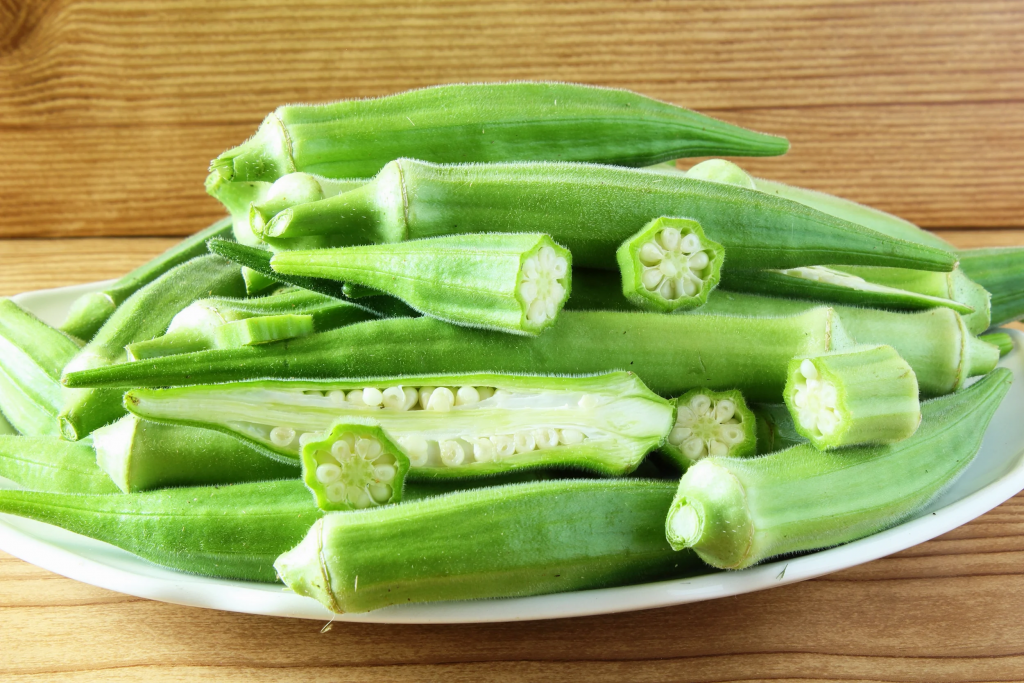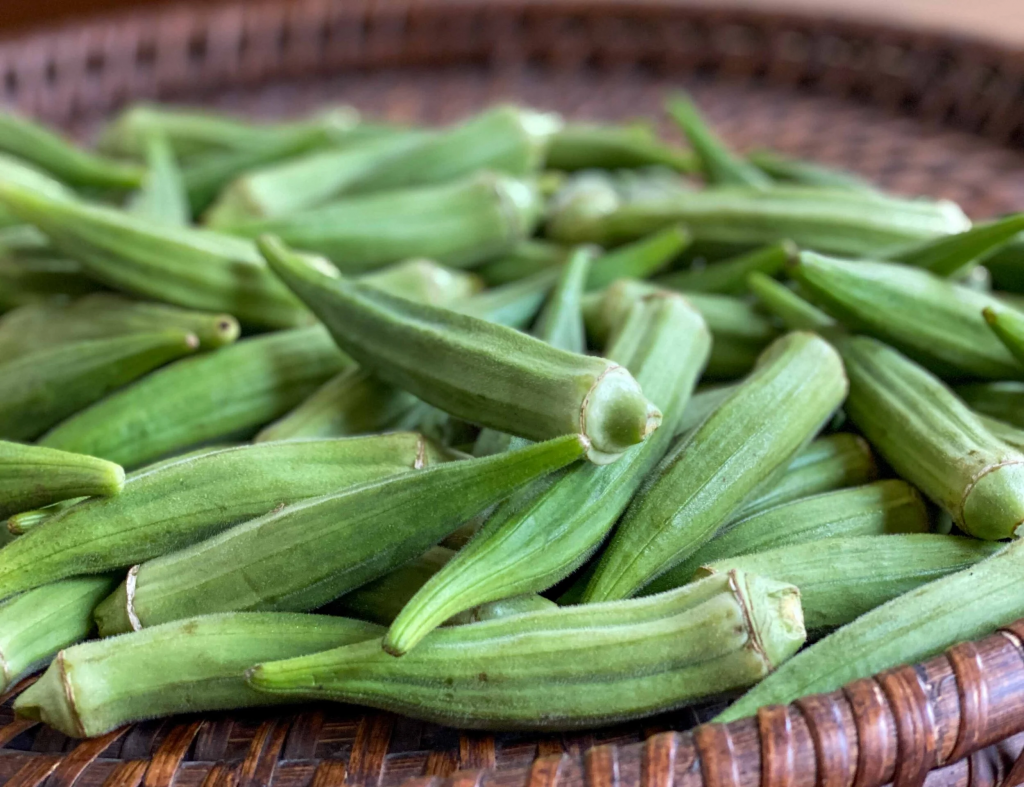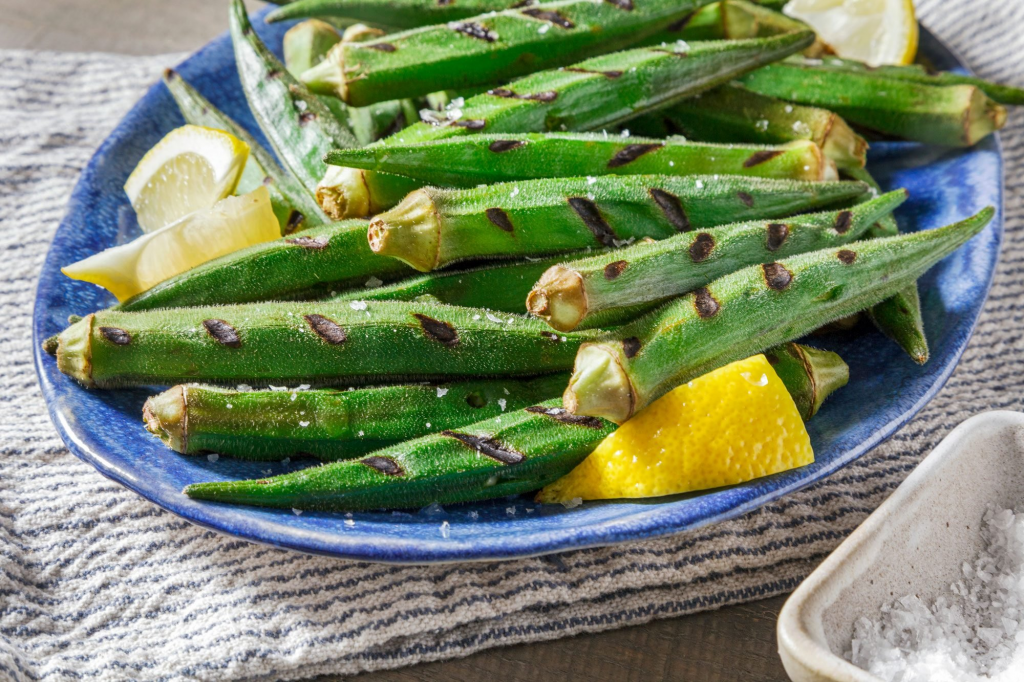Okra, often called “lady’s finger” in many cultures, is one of those vegetables that people either love or overlook. Surprisingly, global production of okra has exceeded 10 million tons annually, with countries like India and Nigeria leading the way. Yet in many households, it remains underappreciated, often dismissed because of its unique slimy texture when cooked.
But here’s the fascinating part: behind its simple appearance lies a powerhouse of nutrition, tradition, and culinary versatility. Okra has been used for centuries in dishes across Africa, Asia, and the southern United States—not only for flavor but also for its potential health-supporting properties. Whether you’re curious about its nutritional benefits, cultural history, or cooking tips, there’s more to okra than meets the eye.
In this article, you’ll discover 10 things you should know about okra—covering everything from health facts and cooking secrets to real-life ways people are using it to improve wellness. By the time you finish reading, you might just consider adding this humble vegetable to your grocery list.

1. Okra Is Nutrient-Dense
Okra may be low in calories, but it is packed with essential vitamins and minerals. A single cup of raw okra (about 100 grams) provides:
| Nutrient | Amount | % Daily Value* |
|---|---|---|
| Calories | 33 | — |
| Fiber | 3 g | 12% |
| Vitamin C | 23 mg | 26% |
| Vitamin K | 31 mcg | 36% |
| Folate | 60 mcg | 15% |
| Magnesium | 57 mg | 14% |
*Based on a 2,000-calorie diet.
This nutrient profile makes okra a strong addition to a balanced diet, particularly for supporting immunity, bone health, and energy metabolism.

2. It May Support Digestive Health
Okra is rich in soluble fiber, which forms a gel-like substance in the digestive tract. This helps regulate bowel movements, supports gut bacteria, and can improve overall digestion. Many traditional diets have used okra to ease constipation and promote gut comfort.
Case in point: people in the American South often include stewed okra in comfort foods not only for its taste but also for its ability to soothe the digestive system after heavy meals.
3. Okra and Blood Sugar Control
One of the most talked-about potential benefits of okra is its effect on blood sugar levels. Some animal studies suggest that compounds in okra may help reduce sugar absorption in the intestines, making it of interest to people managing blood sugar naturally.
Although more human studies are needed, many nutritionists highlight okra’s fiber content as a natural way to support healthy blood sugar control when combined with a balanced diet.

4. Rich in Antioxidants
Okra contains flavonoids, polyphenols, and vitamins C and A—compounds that act as antioxidants. These substances help neutralize free radicals in the body, potentially reducing inflammation and supporting heart and skin health.
Antioxidants also play a role in slowing down visible signs of aging. In some cultures, okra water (soaking pods overnight in water and drinking the liquid) is a traditional remedy believed to promote vitality and skin radiance.
5. A Friend to Heart Health
The combination of fiber, antioxidants, and magnesium makes okra a heart-friendly food. Fiber helps reduce cholesterol, while magnesium supports blood pressure regulation. Antioxidants further protect against oxidative stress, which is linked to cardiovascular issues.
In fact, heart-conscious diets like the DASH (Dietary Approaches to Stop Hypertension) encourage adding more vegetables like okra for their protective effects.

6. The Slimy Texture Has a Purpose
Okra’s “slime,” technically called mucilage, may not be everyone’s favorite, but it serves important purposes. In cooking, it thickens soups and stews, giving gumbo its iconic texture. Nutritionally, mucilage supports digestion and may help trap cholesterol and toxins for elimination.
Tip: If you prefer less slime, try roasting or grilling okra instead of stewing it. This method enhances its flavor while reducing the sticky texture.
7. Okra Has a Long Cultural History
Okra originated in Africa and was brought to the Americas during the transatlantic slave trade. Today, it remains a key ingredient in Creole and Cajun cuisines, Middle Eastern stews, and Indian curries.
Beyond the kitchen, okra seeds were once roasted and ground as a coffee substitute during times of scarcity. Its cultural significance makes it not only a food but also a symbol of resilience and adaptation.

8. Potential Role in Weight Management
Because okra is low in calories and high in fiber, it can help with satiety, keeping you full for longer without adding extra calories. People who are aiming for weight balance often find that incorporating okra into meals helps reduce snacking and overeating.
A simple stir-fry of okra with onions and garlic can make a light yet satisfying side dish that supports a healthy eating plan.
9. Okra Water: A Growing Trend
Recently, “okra water” has gained attention on social media as a wellness drink. To make it, fresh pods are soaked in water overnight, and the liquid is consumed in the morning. Advocates claim it supports hydration, digestion, and even joint health.
While scientific evidence is still limited, this traditional remedy is an example of how people worldwide experiment with natural foods for health benefits.

10. Easy to Add to Your Diet
Okra is versatile and easy to prepare. You can:
- Add it to stews, curries, and soups.
- Roast or grill with olive oil and spices.
- Slice and sauté for a quick side dish.
- Blend into smoothies for an extra fiber boost.
Its mild flavor makes it a great partner for spices and herbs, allowing endless creativity in the kitchen.
Conclusion
Okra is far more than a humble vegetable—it’s a nutrient-rich, culturally significant food that can support digestion, heart health, and overall wellness. Whether you enjoy it in gumbo, roasted with spices, or even as okra water, this versatile ingredient deserves a place on your table.
Frequently Asked Questions
Is okra good for blood sugar?
Some studies suggest it may help, mainly due to its fiber, but more human research is needed.
How can I reduce the slime when cooking okra?
Try roasting, grilling, or stir-frying at high heat to minimize the mucilage.
Can I eat okra raw?
Yes, raw okra can be eaten in salads or smoothies, though cooking often makes it more enjoyable.
This article is for informational purposes only and should not replace professional medical advice. Always consult a healthcare provider before making significant dietary changes.




